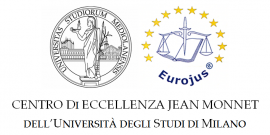Il c.d. Qatargate e le nuove norme del Parlamento europeo in materia di whistleblowing: troppo tardi e troppo poco?
Abstract
Il gravissimo scandalo per condotte di corruzione che ha investito il Parlamento europeo nel dicembre 2022 (c.d. Qatargate) ha fornito l’impulso per una serie di riforme all’interno e all’esterno dell’istituzione direttamente coinvolta. Per far fronte al clamoroso fallimento dei meccanismi interni di monitoraggio e allerta evidenziato dal Qatargate è fin da subito emersa la necessità di intervenire sulla protezione degli informatori, allineando le norme applicabili all’interno delle istituzioni a quelle della direttiva (UE) 2019/1937, che contiene la prima disciplina organica in materia di whistleblowing adottata a livello sovranazionale. In attesa di una revisione dello Statuto dei funzionari, il 20 novembre scorso l’Ufficio di Presidenza del Parlamento ha approvato nuove norme interne che si propongono di incorporare gli aspetti della direttiva compatibili con lo Statuto. Il presente contributo intende valutare se effettivamente questa riforma interna rifletta gli auspici dell’istituzione, garantendo ai whistleblowers all’interno del Parlamento europeo un livello di tutela equiparabile agli standard previsti dalla direttiva. In via preliminare, quindi, verranno brevemente illustrati i tratti salienti della direttiva per poi considerare le disposizioni dedicate agli informatori all’interno dello Statuto dei funzionari e nell’ambito del Parlamento europeo.
Per leggere l’articolo completo clicca qui
The major corruption scandal which hit the European Parliament in December 2022 (so-called Qatargate) triggered a set of reforms within and outside of the institution directly involved. In the wake of the drastic failure of internal monitoring and alert mechanisms highlighted by Qatargate, it became evident from the outset that it would be necessary to intervene on whistleblower protection by bringing the rules applicable within the institutions into line with Directive (EU) 2019/1937. The Directive is the first supranational instrument ever to provide for a comprehensive framework governing whistleblowing. Last November, while waiting for a review of the Staff Regulations, the Bureau of the European Parliament approved new internal rules meant to incorporate the aspects of the Directive compatible with the above Regulations. This paper aims to assess whether such internal reform satisfies the wishes of the institution by assuring whistleblowers a similar standard of protection to that of the Directive. To that end, the paper will first outline the main features of the Directive itself, and then consider specific provisions for whistleblowers inside the Staff Regulations and within the European Parliament.
To read the full article click here
ARTICOLI CORRELATI
Per tag
Per data
| L | M | M | G | V | S | D |
|---|---|---|---|---|---|---|
| « Lug | ||||||
| 1 | ||||||
| 2 | 3 | 4 | 5 | 6 | 7 | 8 |
| 9 | 10 | 11 | 12 | 13 | 14 | 15 |
| 16 | 17 | 18 | 19 | 20 | 21 | 22 |
| 23 | 24 | 25 | 26 | 27 | 28 | 29 |
| 30 | ||||||


